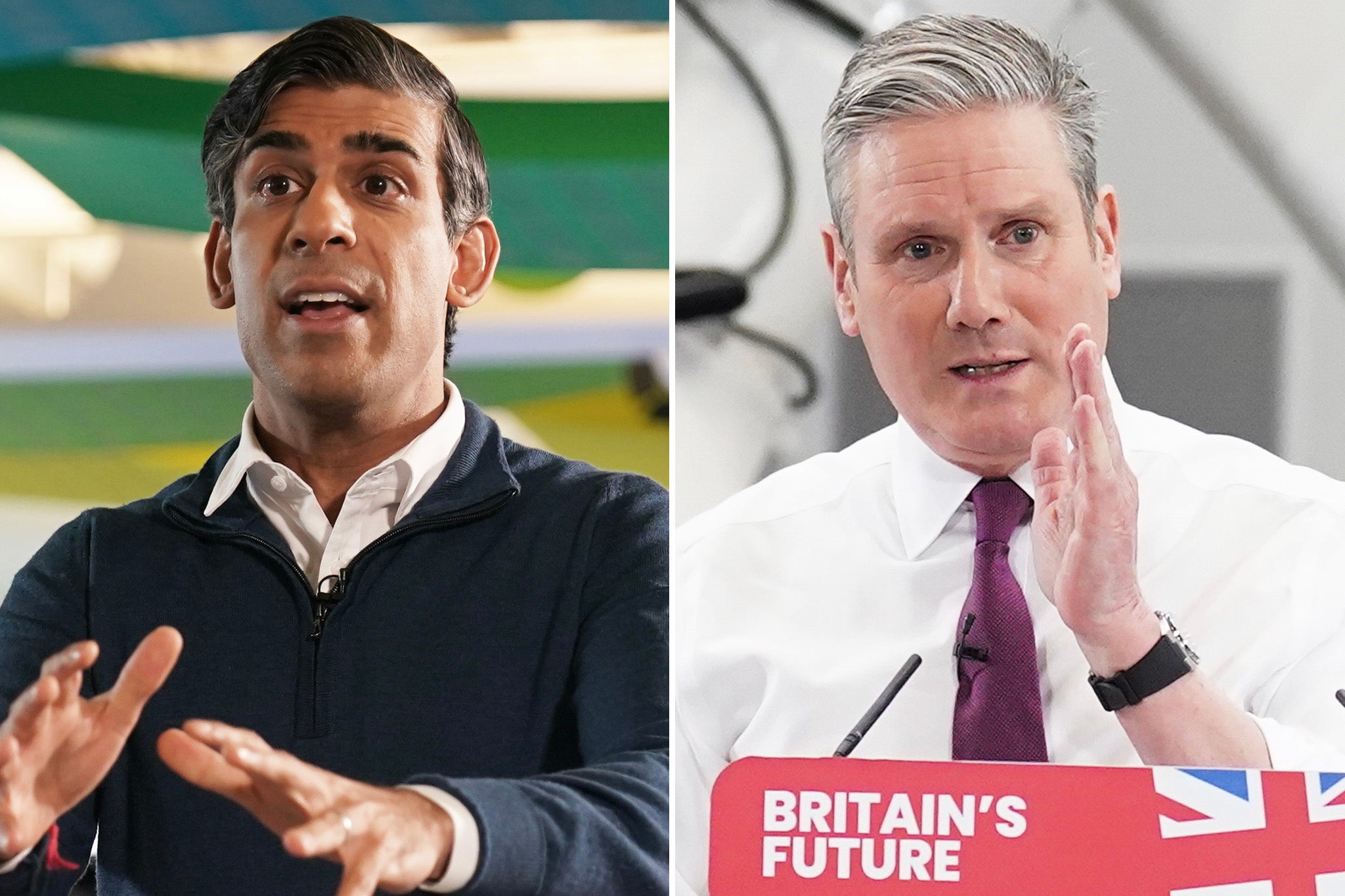On your marks! Sunak and Starmer are on the campaign trail – and this is the most likely date for the election
The prime minister more or less set us for a winter election, while the Labour leader set out his stall, writes John Rentoul. Today’s the day the campaign (unofficially) started...


The prime minister bowed to the inevitable before journalists’ speculation about the election date could reach “bottler Brown” fever pitch. Well aware that Gordon Brown’s big mistake in 2007 was to allow election preparations to become too far advanced before pulling the plug, Rishi Sunak said that an election in the second half of this year was his “working assumption”.
That still leaves July as a theoretical possibility, and October as a more plausible option, but I read his words as pointing towards November or December. Of course, Sunak could still dash to the country in May if the opinion polls suddenly turned in his favour, but that was never likely, which is why his words today merely confirm what had already become accepted in Westminster. No prime minister would voluntarily call an election while their party was so far behind in the polls.
Many political observers are a bit rusty about the rules, now that they have reverted to the position before the Fixed-term Parliaments Act came in after the 2010 election. But the simple rule is that the prime minister decides the date of an election, and advises the monarch to dissolve parliament 25 working days beforehand.
A September election would have to be called in August, which would mean recalling parliament to dissolve it, and late October is complicated by the Commonwealth Heads of Government Meeting in Samoa starting on 21 October.
Given that the prime minister would presumably like to stay in office as long as he can without looking desperate, I think the most likely date is 12 December, exactly five years after the last election.
So, just 11 months and one week to go, then. The long election campaign starts now. Keir Starmer’s speech in a target constituency outside Bristol felt like a hustings event, and the prime minister’s words soon afterwards cast it even more so, retrospectively.
The speech itself was a cheap plasterboard construction, an assembly of platitudes crudely fixed together. Time for change. Politics in the service of working people, not a game for “people who enjoy the feeling of power”. Nor should politics be “a sermon from on high, a self-regarding lecture, vanity dressed up as virtue”, the Labour leader said, as he delivered a low-church mission statement from a lectern in front of a robot arm.
The interesting bit, though, was the question and answer session with journalists afterwards. He took 11 questions to show how open and accountable he is, in contrast to Sunak, who sometimes scuttles off after two or three, and the sustained barrage felt like an election campaign grilling.
What really felt like an election, though, was the back-and-forth between the parties after Starmer and Sunak spoke at their respective events. Labour seized on the prime minister appearing to postpone the election by accusing him of running away from the people. Starmer said of Sunak that “he’s going to be squatting for months and months in Downing Street”, which echoed the Tory charge against Gordon Brown after the 2010 election, when the Labour prime minister refused to leave immediately and tried to secure a rival deal with the Liberal Democrats.
Starmer also accused Sunak of having “no mandate”, because he was installed in between elections – again echoing opportunist Tory attacks on Brown, who thought about asking for his own mandate when he took over from Tony Blair, and then decided not to.
This is all low-rent, knockabout politics, but I was struck by the slick Labour graphics on social media, which quoted Starmer at 11am, “Bring it on,” and Sunak at 1pm, “Bring it ... erm ...” And by the feebleness of the Conservative attack on Starmer’s speech.
Tory HQ put out a news release quickly, quoting Jeremy Hunt, the chancellor, responding to Starmer’s ambiguous comments about Labour’s £28bn-a-year plan for green investment. The tempo was certainly that of an election campaign, but the content of the Tory attack was weak. Hunt said that if Labour couldn’t borrow the £28bn a year, it would put up taxes to pay for its green plan, whereas the plain implication of what Starmer said was that, if borrowing conflicted with Labour’s fiscal rules, the party simply wouldn’t invest that much.
In a later interview, Starmer said that he would fight “fire with fire” if the Tories “go low” in the campaign. On the evidence of today’s opening exchanges, the more serious danger is of the Tories trying to fight an election with a wet blanket. Labour’s policies are not anything like ready for government, in my opinion, and the Tories would be doing the country a democratic service if they put Labour under real pressure.
But on the evidence of their showing today, if Labour are not ready for government, the Tories are not remotely ready for an election campaign.






Join our commenting forum
Join thought-provoking conversations, follow other Independent readers and see their replies
0Comments